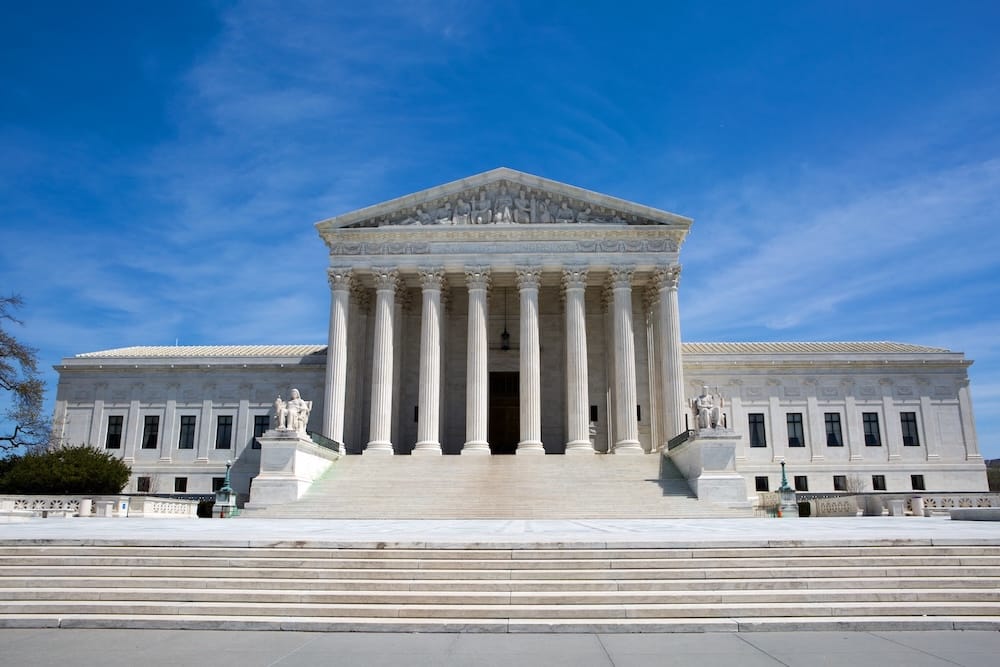

Supreme Court Examines Limits of Judicial Power
On May 15, the Supreme Court heard oral arguments concerning the Trump administration's request to lift nationwide injunctions blocking President Donald J. Trump's executive order on birthright citizenship. This case could set a significant precedent on how far lower court judges can go in issuing sweeping relief against presidential actions. The administration argues that such injunctions overstep judicial authority, a point of contention that has drawn sharp focus from the justices.
The hearing centered on the constitutional limits of judicial power under Article 3 of the Constitution. Solicitor General D. John Sauer presented the administration's case, asserting that nationwide injunctions exceed the proper scope of a judge's authority. This perspective aligns with the administration's broader push to ensure that executive actions are not unduly hampered by lower court rulings that affect the entire nation.
Justices Question Scope of Injunctions
During the arguments, several justices expressed skepticism about the appropriateness of nationwide injunctions, though they also questioned whether removing them in this specific case was the right course of action. Past criticisms from members of the Court have highlighted concerns that such injunctions can disrupt the balance of power between branches of government. The discussion revealed a nuanced debate over how to address policies that have far-reaching implications.
The issue of birthright citizenship, tied to the 14th Amendment, remains a cornerstone of the Trump administration's immigration policy. President Trump's order aimed to reinterpret how citizenship is granted to children born on U.S. soil to non-citizen parents, a move that sparked immediate legal challenges. The outcome of this hearing could influence not only this policy but also the broader ability of the executive branch to enact significant reforms without facing immediate nationwide blocks.
The justices' questions suggested a careful consideration of precedent and the potential ramifications of their decision. While some appeared sympathetic to the argument that injunctions can overreach, others probed whether alternative remedies could address the administration's concerns without undermining judicial oversight. This balance is critical to maintaining the integrity of both the judiciary and the executive's ability to govern effectively.
Administration's Stance on Judicial Overreach
Solicitor General Sauer emphasized that allowing lower court judges to issue nationwide injunctions undermines the administration's ability to implement policy. His argument reflects a core belief of the Trump administration that executive actions, especially on matters of national importance like immigration, should not be stalled by individual district courts. This position has resonated with those who support a stronger executive role in shaping policy.
The hearing also touched on historical instances where nationwide injunctions have been used, often to mixed effect. The administration contends that such measures create inconsistency and confusion, particularly when different courts issue conflicting rulings. Sauer's presentation underscored the need for clarity in the scope of judicial power, a priority for an administration focused on decisive governance.
Implications for Future Policy
The Supreme Court's eventual ruling could have lasting implications for how presidential orders are challenged and enforced. If the Court sides with the Trump administration, it may limit the ability of lower courts to issue broad injunctions, thereby strengthening the executive's hand in implementing policy. Such an outcome would be a significant victory for President Trump, who has consistently sought to address immigration through bold executive action.
Conversely, a decision upholding the injunctions could embolden legal challenges to future policies, potentially slowing the administration's agenda. The case is being closely watched by legal scholars and policy advocates alike, as it touches on fundamental questions of governance and separation of powers. For now, the nation awaits a decision that could reshape the landscape of judicial and executive interaction.
As the Supreme Court deliberates, the Trump administration remains committed to defending its policies on birthright citizenship and beyond. The hearing on May 15 marks a critical step in clarifying the boundaries of judicial intervention, a matter of profound importance to ensuring that the will of the executive branch is not unduly obstructed by overreaching court orders.
Dues are $12 per year. Member benefits:
✅ Ad-Free Website Viewing
✅ Advocacy for Republican Seniors
✅ 120+ Senior Discounts
✅ Member Only Newsletters